|
Your brain is an extremely important organ. It is the hub of everything. It is in charge for learning, cognition, memory, thinking, and individual growth. Keeping your brain healthy is obviously critical. Brain autophagy is a process that allows your brain to regenerate, get rid of old and unhealthy cells, and replace them with new and healthier ones. The trouble is that as you age, there is an increasing risk of brain degeneration. Leading an unhealthy lifestyle and toxic environmental factors can lead to a decline in brain health and function. The good news is that making some lifestyle changes using natural brain-supporting strategies can help to enhance brain autophagy, support your brain function, and prevent brain degeneration. As stated, brain autophagy is critical for promoting brain health and preventing brain degeneration. There are a number of different strategies you can apply today to support your body’s ability to heal and repair brain cells.
I would be more than happy to discuss any of these strategies in more details. If you have any questions or would like to start a dialog, please contact me.
0 Comments
Always Tired? There are many possible reasons for why you feel tired all the time. Some causes are very simple and easy to address, while others may be rooted in chronic conditions that require a more thorough approach. Fatigue can impact your life to the point where it's negatively affecting your work, relationships and other aspects. I found this great article that I'd like to share with you. Below are a few potential causes and how they can be addressed. And a list of very simple things you can do to improve your sleep. Check it out:
Besides the ones mentioned above, fatigue can come from myriad underlying medical conditions. The list below sheds light on the most common culprits:
So What Can You Do? Below a few practical solutions to help prevent being tired all the time - some easy tips for sleeping better at night:
For the full article, sources & references - click here.
5 Body Signs of Nutritional Deficiencies Nutritional deficiencies left undetected or without cause for alarm over long periods can lead to life altering health problems. Different areas of your body can signal that something is physiologically wrong. Being in tune with your body's needs and being aware of these signs of nutritional deficiencies are critical to whole body wellness. Optimal vitamins and minerals are required by the body to properly eliminate toxins from the body, promote the health needs of your digestive system, cardiovascular system, metabolism and total body strength. Signs can be both external and internal and can be caused by the over consumption of one vitamin or mineral which can leave your body out of balance and deficient in other minerals. Learn the 5 body signs of nutritional deficiencies below so that you can better detect how your body is functioning. Learn how to enable you to heal faster if you notice something is wrong. These small signs are fixable today and they can prevent you from long term health problems. Sign #1: Hair Loss and Skin Rash Nutritional deficiencies affect a person's entire life. Not only do these nutritional deficiencies lead to a decline in physical health but many problems can influence work and social life. Hair loss and face rashes may impact one's desire to feel comfortable in public settings and may be the first indicator that there is a hormonal imbalance or other physiological concern stemming from inadequate nutrient intake.
Supplements When biotin levels are low, many times other B vitamins are low as well. Such as B2, B6, folate and often B12. For general maintenance a supplement with 300-400 mcg (100-133% of RDA) of biotin daily is a good option. Sign #2: Oral Health Problems Oral health reflects the relationship you have with consuming proper nutrients in your diet. Please consider that many vitamins and minerals are responsible to protect the oral cavity. Nutritional deficiencies can manifest in various ways in the oral cavity and develop into more severe health challenges down the road. For instance, consider the following nutrients and there effects on supporting structures in the oral cavity:
These symptoms of nutritional deficiencies are often associated with vegetarians who do not consume enough essential nutrients through diet because animal products contain many of the fat soluble vitamins needed to maintain oral health. Individuals also susceptible to nutritional deficiencies in which symptoms manifest in the oral cavity include people with gastrointestinal diseases, thyroiditis, autoimmune disorders, and people who consume proton inhibitor medications Related Deficiencies Common vitamin and minerals associated with poor oral health include a complex of B vitamins including riboflavin (B2), B12 and niacin (B3) as well as minerals like iron and zinc. The effects of nutritional deficiencies for each nutrient listed above can result in the following problems:
Remedy Nutritional deficiencies in any of these nutrients can result in weakened immunity and a higher risk for infection. Unless you have specific dietary restraints, excellent protein sources containing iron, zinc and B vitamins are found in wild caught salmon, free-range poultry and organic and free range sourced eggs. Watch out for phytate containing foods such as grains, legumes and nuts. These phytic acids bind to minerals like zinc and iron and reduce our ability to absorb them. Always soaking and sprouting nuts and seeds removes the phytic acids and enhances the bioavailability of the nutrients in the nut or seed. Additionally, be sure to use fermented foods which have a higher amount of B vitamins and good bacteria and enzymes to enhance the digestive process. Add more vegetables to your diet high in vitamin C to boost the availability of iron into the body. Foods include kale, cruciferous vegetables like cauliflower and broccoli, tomatoes, red bell peppers and citrus fruits like lemons and limes. Especially if you follow a specific diet, it is crucial to receive B vitamins from foods like avocados and dark leafy green vegetables. Sign #3: Muscular Cramps in Legs Frequent muscle cramping in the calves, arches of the feet and a stabbing sensation in your toes may be a sign that you are deficient in one of the critical nutrients that work in balance to control other ions. You may just be working up a sweat more often than before which increases your loss of electrolytes. However, whether your cramps occur over short or long term periods this symptom should be treated accordingly.
Remedy Excellent sources of magnesium in foods are found in avocados, pumpkin seeds and unsweetened cacao while Brazil nuts and almonds contain high amounts of both magnesium and potassium. Both calcium and magnesium can be received in combination with a healthy ratio of vitamin D3 to regulate calcium absorption in fermented foods like kefir, yogurt and milk from 100% grass-fed animals. Coconut water and coconut water kefir are great sources of potassium. A good and effective combination includes doing 3 Epsom salt baths each week, 3 days of sunbathing at least 30 minutes with 40% or more of the body getting high quality sun exposure, using fermented foods and drinks like coconut water kefir and an avocado daily. In addition, I recommend using generous amounts of Real Salt on food and hydrating well throughout the day. Consume some dark green leafy veggies each day for calcium and anti-oxidants. Many essential oils have natural antispasmodic qualities, which help inhibit problems associated with spasms, cramps and muscle pulls. Some good ones include lavender, chamomile, rosemary or cypress. You can massage these onto your legs, diffuse them in your home and put them into your Epsom salt bath. Sign #4: Itchy Red Rashes, Acne & Blemishes Several skin problems are associated with nutritional deficiencies. Skin conditions such as psoriasis, eczema, severe acne and even skin pigmentation disorders may have you trying to alleviate the problem with skin moisturizers and anti-inflammatory drugs.
Related Deficiencies The World Health Organization (WHO) recognizes that vitamin A deficiency is a public health concern affecting more than half of the globe and vitamin D is virtually an epidemic considering 90% of the population is deficient in this critical nutrient. Most people are also deficient in the long chain omega 3 fatty acids EPA and DHA as well and this can result in more inflammation in the skin and sebum glands and the development of acne.
Remedy Foods rich in vitamin A include liver, organic eggs from pastured chickens, dark green vegetables, carotenoid containing produce like carrots and sweet potato as well as milk from 100% grass-fed cows. One of my favorite sources of vitamin A is organic, grass-fed butter or ghee. I use these generously each day. I love butter!
A great source of the long-chain omega 3 fatty acids EPA and DHA is through a purified fish oil. I personally recommend and use Nordic Naturals Cod Liver Oil because it has high amounts of fat soluble vitamin A, 1000 IU of vitamin D and a healthy dose of EPA and DHA. #5: Abnormal Sensations in Hands or Feet Have you ever experienced a tingling in your toes? How about a numbness in your hands or the sensation of pins and needles in your feet? These minor and seemingly insignificant symptoms can be a sign of a serious health problem. Symptoms may be slow to develop but become more severe and lead to serious health consequences over time. Related Deficiencies Vitamin B12 & Folate (Vitamin B9): Since the intrinsic relationship between vitamin B12 deficiency and disease was first recognized in 1849, researchers have fought to understand the many metabolic roles this vital nutrient plays in maintaining health. Vitamin B12 is involved in a key reaction that regulates nerve function, supports DNA synthesis and helps regulate specific amino acid levels like homocysteine from becoming toxic. Folate is another B vitamin involved in similar neurological pathways. A deficiency in vitamin B12 and folate are associated with inflammatory conditions throughout the body. However, severe problems that can arise from a vitamin B deficiency like Crohn's Disease may be masked by less problematic symptoms early on. One of these early body signs is neurological damage manifested as numbness or tingling in areas of the body such as hands and feet.
Remedy Foods containing a complex of B vitamins are primarily of animal origin such as meat, eggs, dairy and poultry. This is why vegans and vegetarians are at an increased risk of vitamin B deficiency. Although vitamin B12 is bound in protein in animal products, vitamin B6 can be obtained from meat as well as green leafy vegetables. Some individuals have genetic issues such as pyroluria that cause them to need much higher B6 levels. Other people have a dysbiotic gut and the bacteria are unable to produce adequate B6 levels. This is where fermented foods can be especially helpful sources of highly absorbable B6. Reasons for Nutritional Deficiencies There are several reasons why someone may have nutritional deficiencies. These include a diet that is low in micronutrients and high in sugar and processed foods. The lesser known reasons include low stomach acid and leaky gut syndrome which cause poor nutrient absorption. Additionally, poor blood sugar balance and chronic stress deplete key nutrients and lead to nutritional deficiencies. All of us have had one or more of these factors for a period of time in our life and it is quite possible you are struggling with one right now that is contributing to nutritional deficiencies in your body. Key Nutritional Tips: Above all, consuming a wide variety of nutritional antioxidants sourced from all the colors of the rainbow in fruits in vegetables can help prevent nutritional deficiencies. Consider eating a superfood every day and choose to have a salad as one of your meals. Be sure to choose organic produce to consume foods with the highest nutritional density.
Click here for the entire article, with references and additional info.
|
Author
DannyTheCoach Archives
January 2023
Categories
All
|

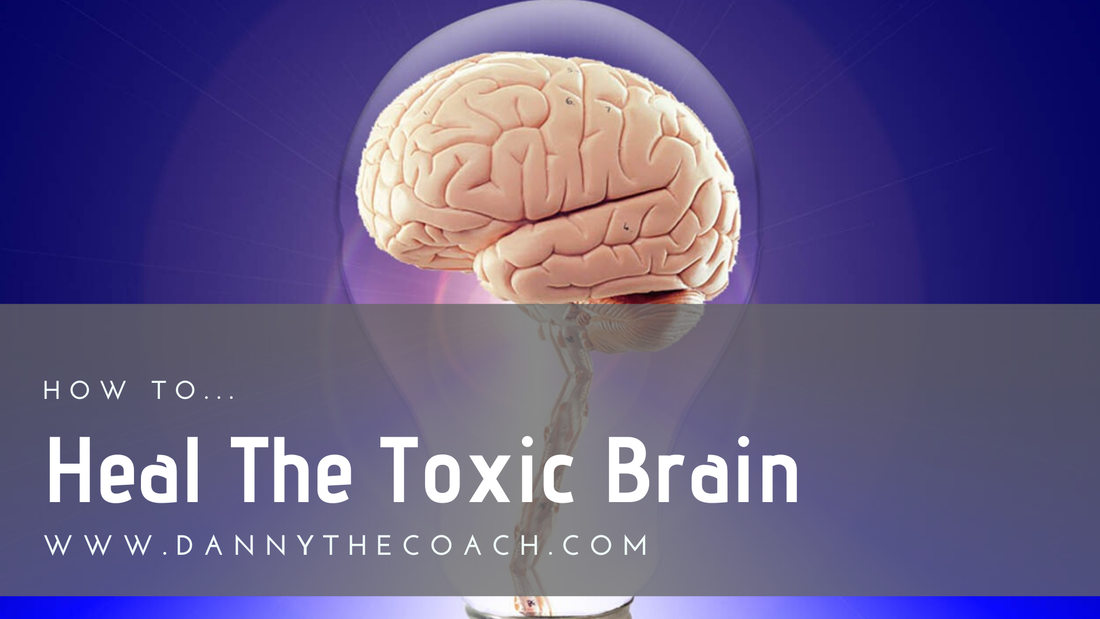

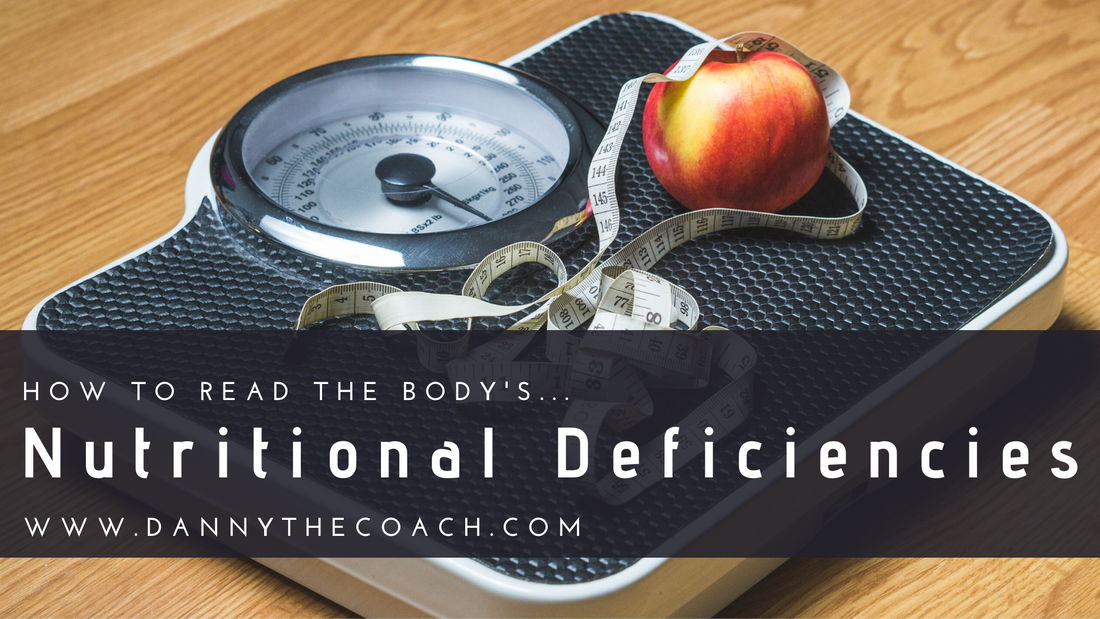
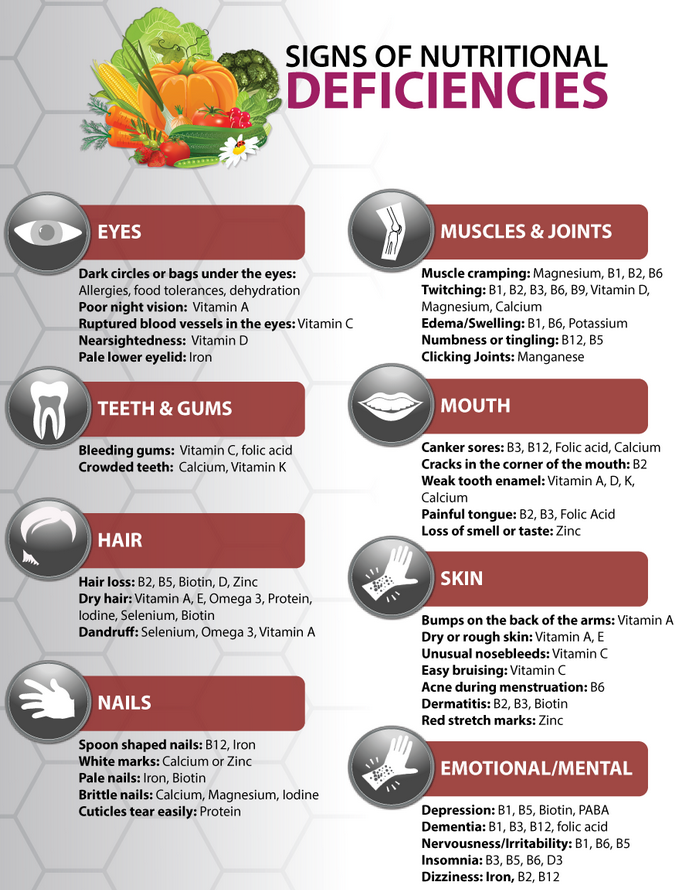
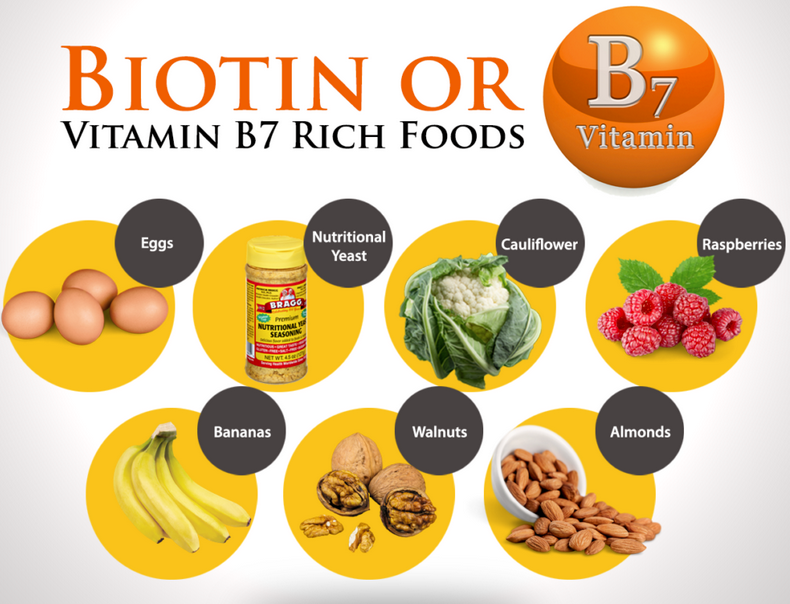
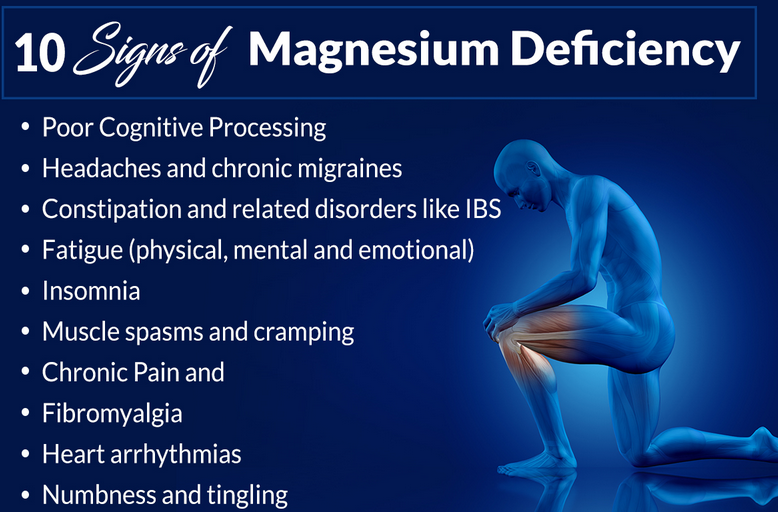
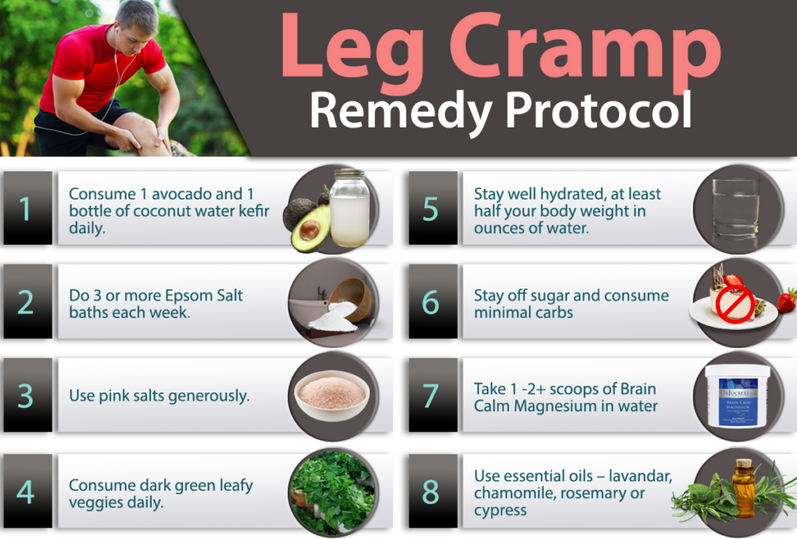
 RSS Feed
RSS Feed